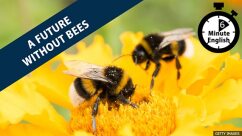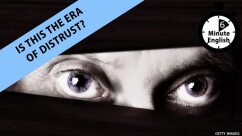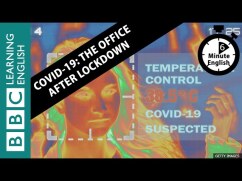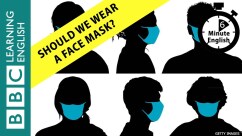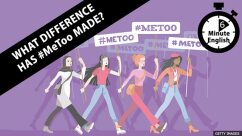sport_against_poverty.pdf
sport_against_poverty.mp3
6 Minute English
Sport against poverty
This is not a word-for-word transcript
Neil
Hello This is 6 Minute English from BBC Learning English I’m Neil
Sam
And I’m Sam
Neil
We all know that sport is great for our health - and if you’re talented it can make
you rich
Sam
Many great champions have found a way out of poverty through their sporting
ability – think of someone like footballer Maradona
Neil
But in today’s programme we’re not looking at the superstars Instead we’ll
discuss how sport can change the lives of young people from some of the
poorest, toughest backgrounds on earth
Sam
And of course, we’ll be learning some new vocabulary on the way
Neil
Many projects around the world use sports to change children's’ lives - improving
mental health, challenging stereotypes and giving hope Among them is the
Ebony Club in Brixton which uses sport to help young people in London’s most
disadvantaged communities – but which sport? That’s my quiz question Is it
a) golf,
b) tennis, or
c) horse riding?
Sam
Well, I can’t imagine there’s enough space for golf and horse riding in the city, so
I’ll say b) tennis
Neil
OK, we’ll find out the answer later Just now we were talking about London but
sporting projects like the Ebony Club are happening all over the world
Sam
In Cape Town, South Africa, British surfer Tim Conibear noticed how kids from
poor townships hardly ever went to the beach So he started giving them free
surfing lessons
Neil
Tim founded the ‘Waves for Changes’ project and now hundreds of kids go along
each week to get “surfing therapy” Not only is surfing giving them a buzz, it's
helping to improve their life chances
Sam
Here he is talking to the BBC World Service programme People Fixing the World
Tim Conibear
Surfing also is quite difficult so you’re learning a very challenging skill which
takes a lot of confidence Very small successes which children have when they go
into the water elicit a really big emotional response If you come from a
background of trauma quite often you’ll have a negative self-image and being
able to try something new, achieve something new, be recognised by a coach or a
mentor is very good for your confidence as well
Neil
Most of the surfers have experienced trauma – emotional pain and shock caused
by very distressing experiences
Sam
This has given them a negative self-image – the way a person feels about
themselves, their ability, personality and value
Neil
Surfing helps kids improve their self-image because it’s challenging - difficult in
a way that tests your ability and determination
Sam
So challenging, in fact, that the children have a mentor – a trusted advisor who
gives help and support to a younger or less experienced person
Neil
Tim believes that the concentration needed to surf makes the children’s other
problems disappear - at least for a short time
Sam
And the results so far have been optimistic, with a significant reduction in violent
behaviour reported among Cape Town’s young surfers
Neil
Surfing is quite well-known in South Africa But what happens when you take a
completely unknown sport into one of the least developed countries on earth?
Sam
In 2007, Australian Oliver Percovich was travelling in Afghanistan with his
skateboard The children there were fascinated so he started showing them how
to skate
Neil
The idea grew and a few years later he founded the organisation ‘Skateistan’
giving free skateboard lessons to children aged five to seventeen, with a focus on
those with disabilities, from low-income backgrounds and especially, girls
Sam
Here’s ‘Skateistan’ volunteer, Jessica Faulkner, explaining how skateboarding
reinforces positive educational messages which Afghan kids don’t always get at
home
Jessica Faulkner
There’s a few things that skateboarding does as a kind of function It is really
quite challenging – it’s not an easy sport for anyone whether you’re young or old
And that means that it also teaches quite a lot of life skills You have to fall off a
skateboard quite a lot of times before you get better and it really helps children
with things like goal setting and resilience and determination Also, and really
importantly, we do believe that children should have fun
Neil
Like surfing, skateboarding is challenging and difficult It requires effort and
Jessica believes this teaches children important life skills – the basic skills
needed to solve problems commonly encountered in everyday life
Sam
One important life skill is goal setting – deciding what things you want to
achieve and how you plan to achieve them
Neil
Along with other skills like determination and resilience, this helps kids improve
their outlook on life
Sam
And to experience one of the most important things – having fun
Neil
Which reminds me about the kids at the Ebony Club and my quiz question
Remember that I asked you which sport the club uses to support disadvantaged
children in London
Sam
Yes, and I said, b) tennis
Neil
But in fact, it’s c) horse riding - a sport normally associated with the elite
Sam
In this episode we’ve been discussing how sport can help improve the life
chances of young people from tough backgrounds, many of whom have suffered
trauma – severe emotional pain and distress
Neil
Such pain damages a child’s self-image – how they see and value themselves in
the world
Sam
This can be improved by taking part in sports, like surfing, skating and horse
riding, which are challenging – demanding and testing of your abilities
Neil
Often kids are supported by a mentor – a trusted, more experienced friend who
can offer help and advice
Sam
And with this support they learn life skills – basic skills everyone needs to cope
with everyday problems
Neil
One important skill is goal setting – deciding what you want to accomplish and
planning how to do it
Sam
And of course, sometimes the most important goal is just to have fun
Neil
That’s all we have time for today Join us again soon as we discuss more topical
issues Bye for now
Sam
Bye
VOCABULARY
trauma
severe emotional shock and pain caused by an extremely upsetting experience
self-image
how a person feels about themselves, their personality, achievements and value
challenging
difficult or demanding in a way that tests your ability or determination
mentor
experienced and trusted advisor who helps a younger, less experienced person
life skills
important skills everyone needs to solve everyday problems and issues
goal setting
identifying the things you want to achieve and planning how to accomplish them
